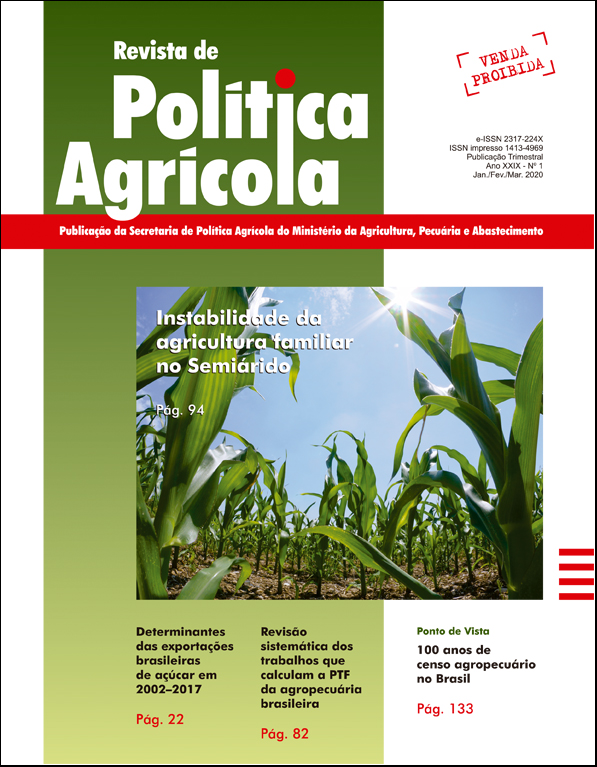Agricultural policy: Food Acquisition Program
Keywords:
Family farming, food assistance, social policy, food safety.Abstract
This article discusses the path of the PAA, based on the literature on the subject and the regulations and laws that apply to it, focusing on the analysis of the meaning of the actions implemented under the mantle of this program. The methodology used was based on a narrative review, which made it possible to explore the object of study through a qualitative synthesis of broad publications. The research was conducted in databases made available from various sources. From the analysis of the investigated contents, were obtained the results of the research and thematic categories, elaborated, which refer to the political-institutional aspects of the PAA, to the theoretical support based on the new historical institutionalism. It is considered that, since its conception, the PAA has been guided by the integration of the incentive actions for the commercialization of foods derived from family agriculture and the provision of food for the population at risk of food insecurity. It was verified that the most active PAA modalities are located in the spectrum of actions of food assistance of the program, to the detriment of actions of structuring character of the familiar agriculture. The advances in the studies show that the PAA has been interpreted by some sectors of the government as a social program of food assistance, rather than an object of agricultural policy. Its function as an agricultural policy instrument was overshadowed by its secondary objective, giving it a food assistance policy bias within the framework of the Food and Nutrition Security (SAN) actions.Downloads
Published
2020-05-22
How to Cite
Machado, M., Rocha, D. F., Campos, M. M., Costa, L. A., & Cunha, A. R. A. de A. (2020). Agricultural policy: Food Acquisition Program. Revista De Política Agrícola, 29(1), 120. Retrieved from https://rpa.sede.embrapa.br/RPA/article/view/1494
Issue
Section
Artigos Científicos


